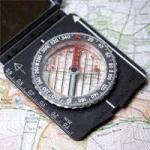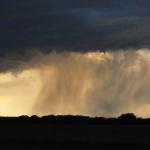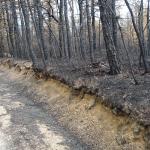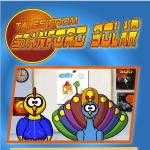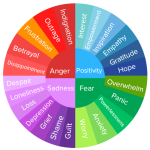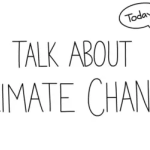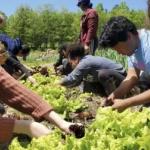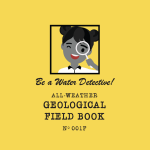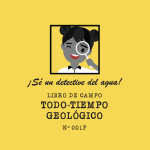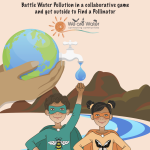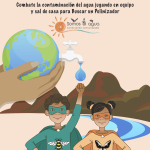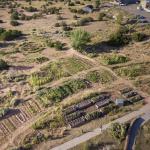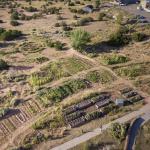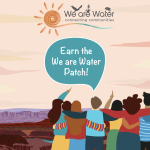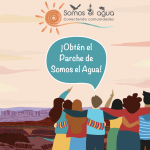Lesson Plans & Activities
Creating a Compass from a Magnet
Project EXTREMES lessons were intended to stand alone, but this lesson can be included in a unit on the Earth’s interior.
In this lesson, students create a compass and apply their reasoning about magnetism to how compasses work to help us navigate around the globe while utilizing the Earth’s magnetic field.

Precipitation Patterns Around the Globe
Project EXTREMES lessons were written to be stand alone lessons but can be incorporated into a larger unit.
Students apply their knowledge of the water cycle to investigate how annual precipitation patterns are related to geography and biology.

Soil Percolation: Where Does the Rain Go?
Project EXTREMES lessons were written to be stand alone lessons but can be incorporated into a larger unit.
This lesson activity has students conduct an experiment that reinforces one component of the water cycle.

What Color is the Sun?
The comic book can be used in informal education settings or as introductions to the topics covered the Solar Dynamics Observatory curriculum.
This comic book was developed with the Stanford Solar Center as part of their comic series Tales from Stanford Solar and explores questions like: What color is the Sun? and How do we study the stars?

The Emotions Wheel
This activity is a stand-alone exercise part of seven activities from the Climate Mental Health Support Activities.
Emotion wheels have been a visual tool used by psychologists for decades to help people better understand and interpret their feelings. This activity is for people of all ages and can be done with family members, in a classroom, with friends, work colleagues, etc.
Nature Appreciation
This activity is one of seven activities in the Climate Mental Health Support Activities.
In this lesson, students will play, explore, appreciate, and practice perspective-taking in nature. All of these actions help positively connect youth to nature, and instill an ethic of care for the environment.
Connecting with Special Places in Nature
This activity is one of seven activities in the Climate Mental Health Support Activities.
In this lesson, students will take time to connect to a place that is special to them.
Visioning Possibility
This activity is a standalone exercise that is part of one of seven activities from the Climate Mental Health Support Activities.
In this lesson, students will find inspiration from innovative solutions, envisioning a hopeful future and their role in it.
Climate Solutions
This activity is a standalone exercise that is part of one of seven activities from the Climate Mental Health Support Activities.
In this lesson, students will participate in a short scavenger hunt to familiarize themselves with climate change mitigation strategies and solutions for decreasing heat-trapping emissions.
Be a Water Detective Take & Make Kit
This Take & Make Kit will help you become a water detective so that you can tell the story of water in your community!
Student's use tools to make observations about how water shapes the surface of our planet and how water supports and is impacted by the life that calls Earth home. Through these observations, water detectives are able tell meaningful stories about water.Sé un detective del agua | Be a Water Detective Take & Make Kit
This Take & Make Kit will help you become a water detective so that you can tell the story of water in your community!
Ser un detective del agua significa ser un buen observador. Los y las detectives del agua se fijan no solo en cómo el agua cambia la superficie de nuestro planeta, pero también en cómo el agua soporta la vida terrestre y es en turno afectada a su por los seres vivos que llaman a la Tierra su hogar.Be a Water Ecosystem Hero Take & Make Kit
This Take & Make Kit will help you become a water ecosystem hero that can battle water pollution, protect our rivers, and recognize pollinators in your local environment!
Student's work together to protect a river from water pollution in a collaborative board game, search for evidence of pollinators in their backyard, and learn about the connections between water, pollution and pollinators.Sé un héroe del ecosistema del agua | Be a Water Ecosystem Hero Take & Make Kit
This Take & Make Kit will help you become a water ecosystem hero that can battle water pollution, protect our rivers, and recognize pollinators in your local environment!
Combate la contaminación del agua jugando en equipo y sal de casa para buscar un polinizador.Waffle Garden Take & Make Kit
This Take & Make Kit will help you understand ancient Indigenous agricultural techniques, including science and math skills that are still effective in modern times!
Indigenous peoples of the American Southwest, including the Diné (Navajo), A:shiwi (Zuni), Zia Pueblo, and Laguna Pueblo, have been using a time-tested agricultural method known as a waffle garden to successfully grow crops in the semi-arid environment for generations. In this activity student's will reflect upon and learn about Indigenous relationships with water and the land to help them understand diverse methods of using water in dry climates.Un jardín de forma de wafle | Waffle Garden Take & Make Kit
This Take & Make Kit will help you understand ancient Indigenous agricultural techniques, including science and math skills that are still effective in modern times!
La gente indígena del suroeste de los Estados Unidos, incluyendo los Diné (Navajo), A:shiwi (Zuni), Zia Pueblo y Laguna Pueblo, han utilizado durante generaciones un método agrícola de probada eficacia conocido como Un jardín de forma de wafle para cultivar con éxito en el entorno semiárido. En esta actividad, los estudiantes reflexionarán y aprenderán sobre las relaciones indígenas con el agua y la tierra para ayudarlos a comprender diversos métodos de uso del agua en climas secos.Watershed Stewardship Patch Activity
Earn a We Are Water Patch by becoming familiar with your local watershed!
We can be good watershed stewards by taking positive actions that will help to ensure the watershed’s healthy functions. In this activity, students learn how to be good watershed stewards and become familiar with their local watershed through observation, positive action, and community engagement.Actividad del parche sé protector de la cuenca | Watershed Stewardship Patch Activity
Earn a We Are Water Patch by becoming familiar with your local watershed!
We can be good watershed stewards by taking positive actions that will help to ensure the watershed’s healthy functions. In this activity, students learn how to be good watershed stewards and become familiar with their local watershed through observation, positive action, and community engagement.Stop Motion Animation Workshop
Learn how to create a short (<1 minute) stop-motion animation of a story!
This workshop is designed to be completed in two days or two sessions. Each portion is about 1.5 – 2 hours long. You may want to leave time between sessions for students to make their pieces. Depending on how intricate their story is, they may need more time for cutting out shapes, making “characters,” etc.